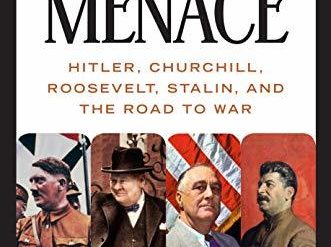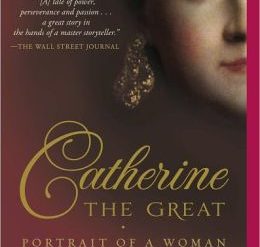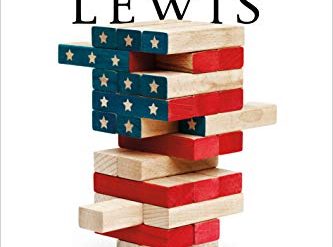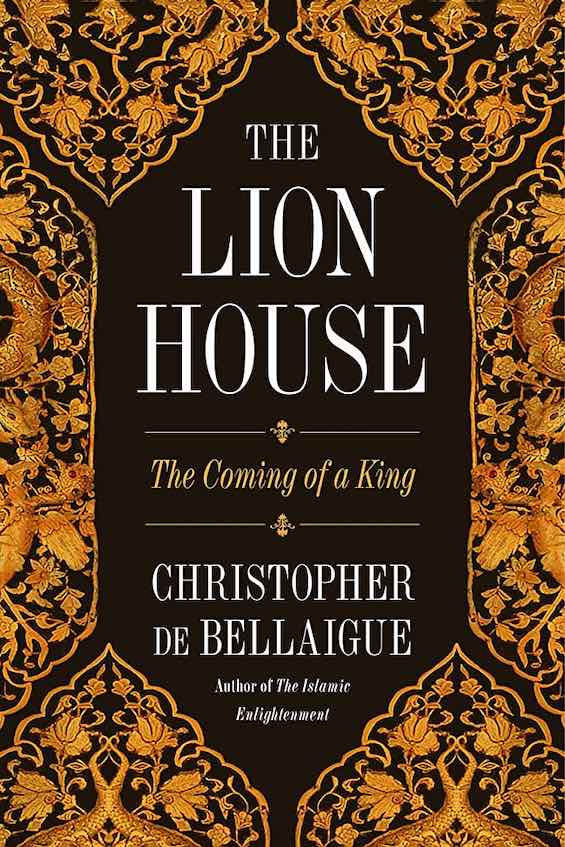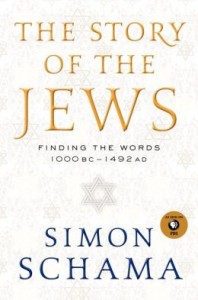
Can you think of any ethnic group that has been more closely studied than the Jews? I can’t. Thousands upon thousands of books of Jewish history have been written; more than 53,000 are listed on Amazon alone — surely a small fraction of the total works produced over the three millennia that have passed since King David united the nation of Israel.
Estimated reading time: 4 minutes
Why, then, does Simon Schama write yet another history of the Jews? The easy answer, of course, is that he was approached to produce a television series for the BBC (later broadcast on PBS, too), but of course the reality is more complex. Schama is himself Jewish, and early in his career he began work on a history of his people, which remained unfinished for four decades. Equally important, he is an accomplished historian as widely celebrated for his lucid prose as for his award-winning and bestselling books (Citizens: A Chronicle of the French Revolution, Rembrandt’s Eyes) and for his previous work on television (A History of Britain for the BBC).
Schama isn’t the sort of historian who chronicles the succession of kings and battles and Great Men that dominate most traditional historical works. He’s a cultural historian. Though English and formerly on the faculty of Cambridge and Oxford Universities, he now serves as University Professor of History and Art History at Columbia University in New York. His books spotlight the work of the poets and painters, the merchants and bankers, the preachers and rabbis — in short, those who most directly affect the way people lived their lives — as well as the economic and political circumstances that enveloped them all.
The Story of the Jews: Finding the Words, 1000 BC – 1492 AD by Simon Schama (2013) 512 pages ★★★☆☆
In The Story of the Jews: Finding the Words, Professor Schama conveys an impressionistic picture of Jewish life from just before the reign of King David until the expulsion of the Jews from Spain by Ferdinand and Isabella in 1492 (yes, the same year we celebrate as the time when the New World was “discovered”).
Like the French Impressionists of later centuries, Schama daubs a little paint on the canvas here or there, giving the reader an impression of one key figure or fateful event, and a little more somewhere else, jumping to a different topic, creating a sense of the warp and woof of life for the Jews during a particular period. His account is chronological, at least for the most part, but the overall impression conveyed by the book is that of broad trends and consequential periods that dominate the story, while other times and other trends appear only in passing, if at all.
One of the three religions of the Book
Schama’s overarching theme is clear, at any rate, and it’s signaled in the book’s subtitle. Judaism is one of the three religions of the Book; it’s very essence lies in words. But for Jews, the words keep coming long after the rules laid down in the Ten Commandments and the Torah — the Mishna, the Talmud, the ceaseless outpouring of rabbinical thoughts — so that our lives continue to revolve around words. (Should anyone therefore be surprised that it’s said of the Israeli parliament, the Knesset, that it consists of 120 members with 120 different points of view?)
I found the book to be rough going, even though I feel reasonably well grounded in Jewish history: Schama dropped far too many names of obscure figures, and too many words in Hebrew or Latin, without definition or explanation. The Story of the Jews is not a good introduction to the topic for the general reader. As a companion to the PBS series, it might make better sense, but I didn’t view it.
The present volume brings the tale up to 1492. A second volume (The Story of the Jews Volume 2: When Words Fail, 1492 – Present) was published in November 2014.
For related reading
For a more comprehensive (and better) Jewish history, see The Jews: Story of a People by Howard Fast—An account of Jewish history full of surprises.
You might also be interested in Worthy books about Jewish topics.
You may enjoy browsing through 20 top nonfiction books about history.
If you enjoy reading history in fictional form, check out 20 most enlightening historical novels.
And if you’re looking for a broader view of human history, check out New perspectives on world history.
And you can always find my most popular reviews, and the most recent ones, on the Home Page.


